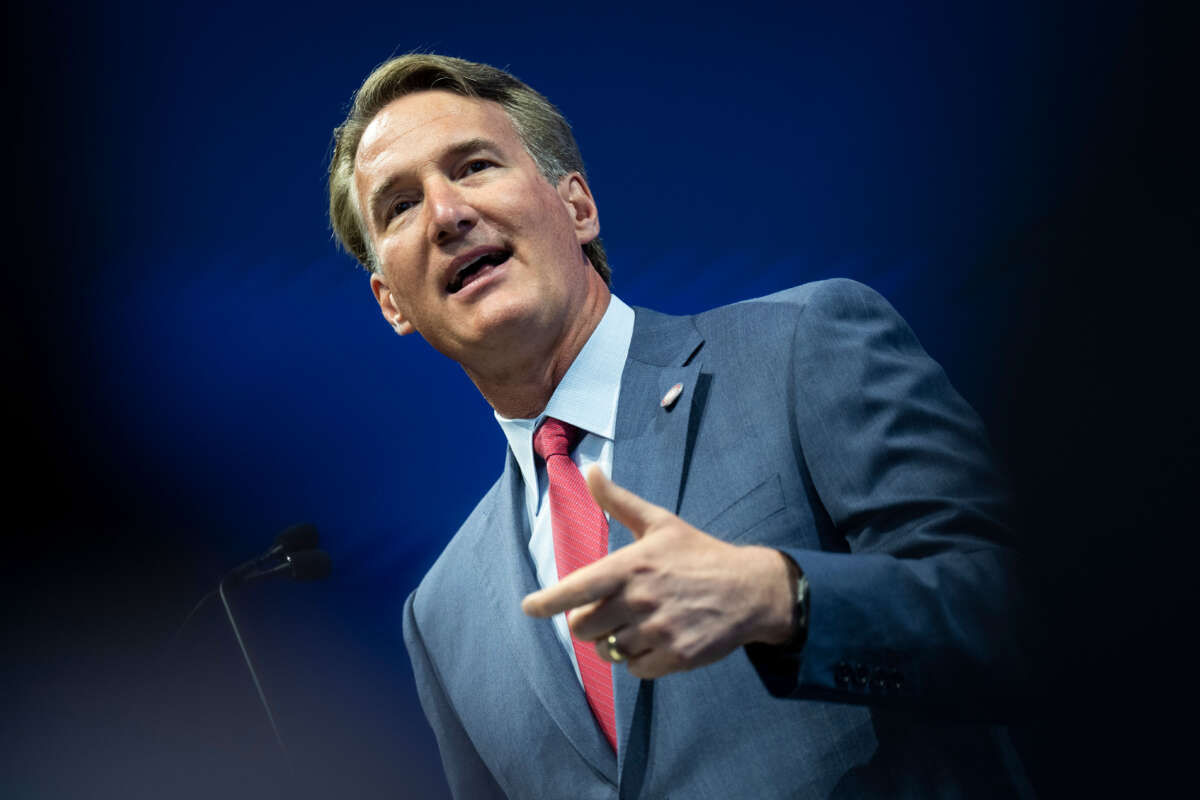Support justice-driven, accurate and transparent news — make a quick donation to Truthout today!
A group of disenfranchised voters in Virginia who have had their voting rights taken away because of an archaic and racist state constitutional amendment are suing the state in federal court. The suit alleges that the laws disallowing individuals formerly convicted of felony crimes from engaging in the democratic process are in violation of a post-Civil War federal statute.
The plaintiffs are being represented by the American Civil Liberties Union (ACLU) of Virginia, as well as Protect Democracy, a nonprofit organization dedicated to “building more resilient democratic institutions.”
The lawsuit names Gov. Glenn Youngkin (R) as a defendant, among many other state officials. Youngkin has refused to follow the actions his three predecessors have taken over the past decade – to remove restrictions on voting rights for hundreds of thousands of Virginians formerly convicted of felony-level crimes.
Virginia is one of only a few states that automatically disenfranchise voters for the remainder of their lifetimes, if they are convicted of a felony-level crime. Notably, this results in a disproportionate number of Black Virginians losing their voting rights, versus white residents, as many of the crimes listed as felonies target Black people — including, for example, nonviolent crimes related to drug use or possession, for which Black people are disproportionately charged and convicted within the U.S.
Of the 312,000 people who cannot vote in the state, around half are Black Virginians, even though Black residents only comprise about 20 percent of the state’s total population.
“Some of the most pernicious attempts to suppress the voting rights of Black citizens originated in the immediate aftermath of the Civil War, but they have consequences that persist to this day,” said Vishal Agraharkar, ACLU of Virginia’s senior supervising attorney.
The lawsuit alleges that several crimes listed as felonies over the past century or so, for which disenfranchisement is part of the penalty for convicted individuals, violate the Virginia Readmissions Act of 1870. That federal statute prohibited Virginia from disenfranchising people for reasons other than so-called “common law” felonies — crimes understood to be within the categories of murder, manslaughter, arson, robbery, rape and larceny, among others.
“The Virginia Readmission Act explicitly prohibits the Commonwealth of Virginia from adopting constitutional provisions that disenfranchise citizens other than those convicted of crimes that were felonies at common law in 1870,” the lawsuit explains.
Over the next few decades after that act was passed and Virginia reentered the U.S., its lawmakers ignored that aspect of the law. Just years after the Readmission Act became federal law, Virginia passed a constitutional amendment expanding its disenfranchisement rules to include petty larceny, which fell outside of the purview of the federal law’s regulations. The process followed that same pattern for years, with other laws also being passed by the state to disenfranchise voters, until, in 1902, an amendment in the state was passed to disenfranchise people convicted of any felony crime, an action that “ignored the clear mandate of the Virginia Readmission Act,” the lawsuit states.
Virginia, like many other former Confederate states during that time, used the felony exception to disenfranchise Black voters, “expand[ing] the scope of crimes that resulted in disenfranchisement to include less serious crimes,” the suit notes.
Virginia, and other states like it, used “criminal law to disenfranchise the newly freed Black citizens of those states,” explained Rachel Homer, counsel for Protect Democracy.
Litigants within the lawsuit have expressed a strong desire to vote, asserting that it was unfair and illegal for them to be restrained from doing so.
“[Voting rights] should be automatically re-afforded to the people once they have served their time,” said Tati Abu King, one of the people represented in the lawsuit who cannot vote due to a drug conviction in 2018. “I feel like it’s a God-given right to have the right to vote.”
Melvin Wingate, another plaintiff in the lawsuit and a Black minister based in Charlottesville, hasn’t been able to vote for more than two decades.
“I’m a firm believer in second chances and being able to vote would be a chance for me to participate fully in my community,” Wingate said. “But since I was released in 2001, I’ve been unable to vote in five presidential elections, six midterm elections, and five Virginia gubernatorial elections.”
Press freedom is under attack
As Trump cracks down on political speech, independent media is increasingly necessary.
Truthout produces reporting you won’t see in the mainstream: journalism from the frontlines of global conflict, interviews with grassroots movement leaders, high-quality legal analysis and more.
Our work is possible thanks to reader support. Help Truthout catalyze change and social justice — make a tax-deductible monthly or one-time donation today.
